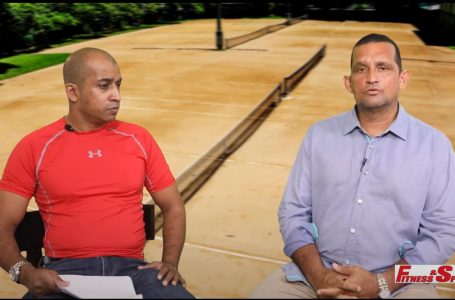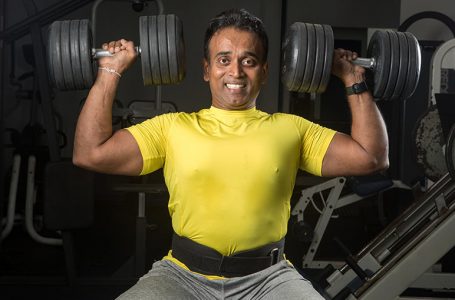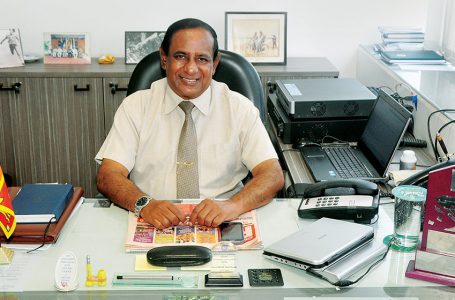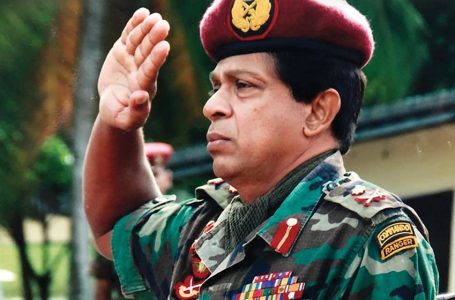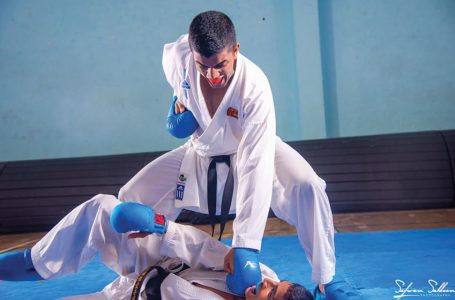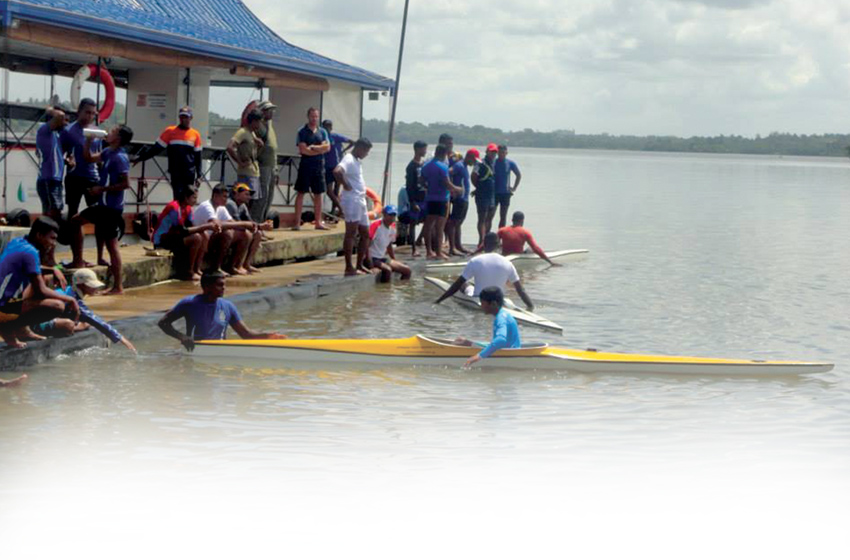
The Olympic sport of Kayaking is an emerging sport in Sri Lanka. Fitness & Sports believes this sport has great potential for reaching international levels in time to come. This article gives an introduction to this relatively new sport in Sri Lanka, followed by an interview with the President of the National Association for Canoeing and Kayaking Sri Lanka (NACKSL), Mr. Prithiviraj Perera and an interview with a former Kayaking World Champion, Gergely Gyertyanos. We also have The President of The Sri Lanka Olympic Committee, Mr. Hemasiri Fernando speaking about Sri Lanka Kayaking in the Olympic arena.
The water sport of Canoeing and Kayaking shows much promise in an island nation like Sri lanka that is blessed with many waterways and therefore can be promoted not only as a leisure sport for fun, adventure and tourism, but also for competition. Canoeing and Kayaking are both Olympic Sports. Kayaking is practiced in 156 countries who are also members of the International Canoe Federation (ICF).
Although Canoe/Kayak paddling has been in existence as a mode of transport and adventure in the Americas and even in Sri Lanka since
ancient times, it has been taken to greater heights with modernized canoes and kayaks. They have become competitive sports, particularly in Europe with Hungary and Germany usually topping the medals tallies at the world championships for Canoeing and Kayaking.
However, with the coming into existence of the National Association for Canoeing and Kayaking Sri Lanka (NACKSL) in August of 2004,the kayaking sport for competitions began to emerge as a force to be reckoned with in the future of sports in Sri Lanka. Hence the reason for giving this sport, the focus it deserves.
Race Canoeing is a sport that requires much balance and is done in a kneel down position in the canoe, whilst Race Kayaking which also requires balance, is done in a sit down position in the kayak, which is easier to balance than the kneel down position required for Canoe Racing. However, leisure kayaking is done on sit on top kayaks, which are very easy to balance on and are used for beginners and introductory classes.
Racing Canoe/Kayak competitions comprise individual events and team events, which can involve two or a maximum of four persons paddling a racing canoe or a racing kayak. These races can be done on flat water, in rapids (salom or wild water),or in the seas(Sea kayaking). However, sea kayaking is not an Olympic sport.
With a view to learning more about the advent of the canoe/kayak sport in Sri Lanka, Fitness & Sports spoke with the main individuals who have been actively involved in promoting the sport in the country. We take pleasure in presenting them to our readership.
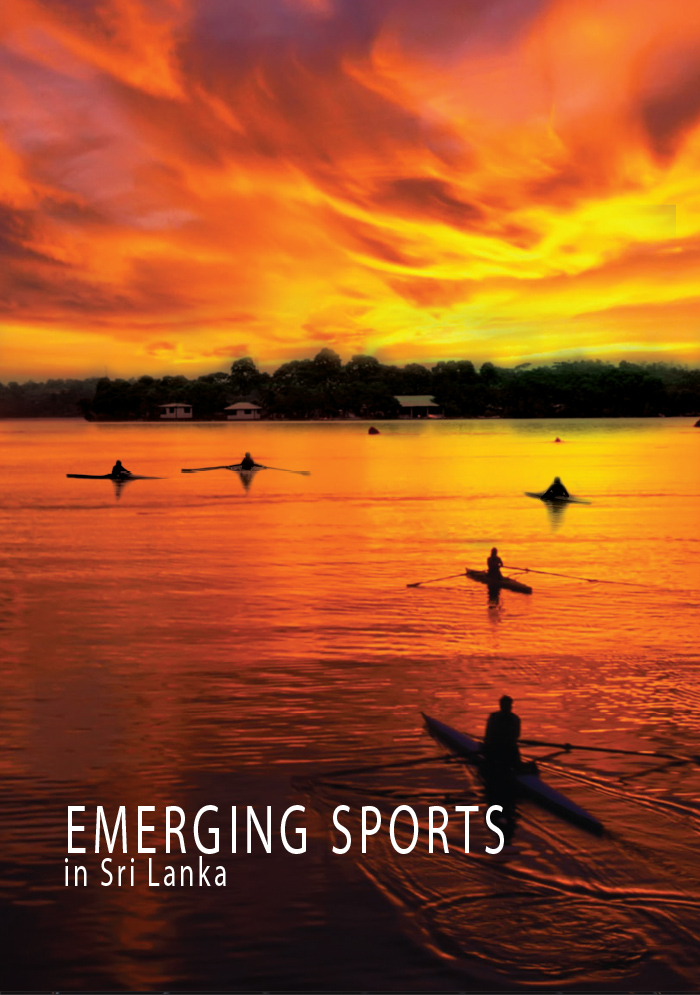
F&S : When was Canoeing and Kayaking first introduced to Sri Lanka as a competitive sport?
P P: We registered the National Association with the Ministry of Sports in August of 2004 and we are just 10 years young today. We have been recognized by the National Olympic Committee of Sri Lanka, (NOC), the Asian Canoe Congress (ACC), and the International Canoe Federation (ICF). NACKSL was initiated by a small group of sports enthusiasts, namely, Anuruddha Bandara (Sri Lanka Eco Tourism Pvt Ltd), the late Chandra De Silva (Ranweli Holiday Resorts), Siri De Silva, Arosha Jayasundera, Chanaka Wickremasuriya and myself. We were the founding members of NACKSL.
F&S : What progress has Sri Lanka made in this sport so far?
P P: We have increased our membership to 7 clubs, including the Defence Services, namely, the Army, the Navy and the Air Force. The regularity of competitions has increased. During the last 10 years, we have carried out two major one month long training programmes conducted by international coaches, one in 2010 and another in 2014, which just concluded on the 17th of September. These training programmes have been funded by the ACC in collaboration with the ICF. We have further enhanced our stocks of Racing Kayaks, provided an international certification for our National Coach, Mihin Amarasinghe, who did a one month stint at the famed Semmesweil University in Budapest,Hungary in 2012. This was funded by Olympic Solidarity Assistance (OSA). Further training workshops have been conducted in Kithulgala, Belihuloya, Bolgoda, Talangama, Beira Lake(Rowing Club and St Joseph’s College),and at the newly available facility in Diyawanna Oya Lake. All of which have been with the generosity of the ACC, ICF and NOC Sri Lanka. In September 2013, our Kayakers had their first ever International exposure at the Asian Canoe/Kayak Championships held in Samarqand,Uzbekistan. Our team of 3 paddlers from the Navy and the Air Force, accompanied by the coach and manager, succeeded in entering the semi finals of the 200 M and 1,000 M events and getting the better of paddlers from Nepal and Pakistan. This truly was an encouraging performance in our first ever international competition. More interest is now being shown by school children and this is a key to further development of the sport and to take it to competitions at the international levels.
F&S : How do you plan to attract more participation in Kayaking as a sport in Sri Lanka?
P P: First of all, in order to keep up the momentum gathered following the last training programme which has just concluded, we will make arrangements for facilities for regular practices at the Lakes of Bolgoda, Diyawanna Oya and the Beira(St Joseph’s College),particularly for those who attended the recently concluded training programme, as
well as others who are interested, so that the students and other trainees can continue with their practices. The students who attended the training included those from Royal, Ananda, St.Joseph’s, St Bridgets and the British School from Colombo and the Prince of Wales and St Sebastians from Moratuwa. The Defence Services and club members can also join in practices in the respective venues, as deemed convenient and appropriate for them. These facilities will also be made available to the new comers to the sport. Soon we hope to request the Ministry of Education to help promote the sport in the schools. More competitions will be organized for students, as well as for the Defence Services. Next year, we hope to arrange for a South Asian Defence Services competition in Sri Lanka, in collaboration with our respective Kayak Federations in other countries and also to select a national team for competitions at the international levels. We will also look for assistance from ICF,ACC, NOC and the Ministry of Sports, to send our athletes for competitions at the World Championships. This would help create more interest amongst the athletes, media and the corporate sector and will give encouragement towards promoting the sport and in attracting participation in kayaking as a competitive sport.
F&S: When did your involvement with Kayaking begin and what attracted you to this sport?
P P: This happened when I was assigned to India on work with UNESCO and I attended a cultural cum sports pageant in Hyderabad in the year 2004, where a Kayak competition was also taking place. I was able to see for myself, the enthusiasm of the participants and when the the Vice President of the Indian kayaking Association, the Late Mr Avinash Kohly who was present at the event requested me to promote this eco-friendly sport in Sri Lanka, it immediately struck me as a sport that can have huge scope for development in an island nation like Sri Lanka, which has comparatively easier access to water-ways, as compared to a country like India. Additionally, it was also of interest to UNESCO to help promote an eco-friendly sport, given that UNESCO’s interests are wide and cross cutting and also cover youth and sports. Today, UNESCO plays a lead role in administering the “Convention on Doping in Sports” and in promoting “Dialogue through Sports” programmes.
When I returned to Sri Lanka in retirement in 2006, I was appointed as Secretary General of the Sri Lanka National Commission for UNESCO. This helped a great deal in keeping up the commitments to the sport, with the assistance of the National Commission for UNESCO. I am by nature, a sports enthusiast and was junior champion in sprint events at St Joseph’s College Colombo 10, my Alma Mater and was also a practitioner of Badminton, captaining the UNESCO Badminton team in Paris. I began playing tennis later in life. Of course, I still paddle, but, on a sit on top kayak that is easier to balance!
F&S : Do you believe that Sri Lankan kayaking can become competitive in the Olympic Arena and what are the steps we need to be able to get there?
P P: Of course, the answer will be “Yes, we can! “. It is not a very expensive sport. All one needs is dedication, commitment and hard work. We the association must ensure top coaching for techniques in paddling along with consistent training for speed, strength and stamina that ensures endurance during races. This all needs to be coupled with appropriate diets and disciplined living. However, as a relatively newly introduced competitive sport, I could say it is a fairly long haul, having to compete with other long established sports in the country to attract new participants ,as also, academic demands on the students from the schools and home. Our first and medium term goal is to become the best for Kayaking in South Asia, before we get to the world arena of Olympic Championships. This is do-able, but, we also need help from other stakeholders, particularly the Ministry of Sports and Corporate sponsors. We cannot only depend on our volunteering efforts and support from the International bodies. We have to have “the buy in” locally. Towards that goal, we have plans for the following programmes and initiatives in the short and medium terms;
Programmes;
- Regular training and competitions at the School, National and Regional levels.
- Participation in the World Championships, using the “Trainee Improvement Programmes -TIP” sponsored by the ICF.
- Enhancing and encouraging the use of higher end Canoes/Kayaks and paddles for those in competition.
- Purchase and or obtaining compete at the standards of The Olympic Games, which can happen mostly when children have grown up acquiring the necessary skills, strength and endurance.
- To request support from the Ministry of Sports and sponsorships from Corporates. The Asian giants in sports, such as China, Japan and South Korea have reached high standards, because they have invested wisely and appropriately in chosen sports where they have the greater comparative advantage and much scope for development up to international standards, as per the assets base of the country.
Initiatives;
Finally, I am most thankful to the Secretary of NACKSL, Capt.Priyantha Perera, other members, particularly Wing Commander Gayajith Dassanayake, Mihin Amarasinghe (National Coach) ,Supem De Silva(Adventure Seals), Sithira Wickremasekera (Bolgoda Lake Rowing Club), and Arosha Jayasundera (Treasurer), who have been always willing to lend more than a helping hand to our fledgling National Association, making up an excellent team in the promotion of Canoeing and Kayaking in Sri lanka.
F&S: Please tell us where you are from and your achievements in the sport of Kayaking?
GG: I come from Budapest which is the capital of Hungary. I was a member of the Hungarian Senior National Flatwater Canoe-Kayak team from 2003 until 2011. In 2005, I won the Gold Medal in the 200 metre 4 man Kayak event at the World Championships. I also won that same year the Gold Medal in the European Championships in the 200 metre 4 man Kayak event.
Currently I am the coach for the New Zealand National Junior/U23 Kayak Team. In Sri Lanka I just finished conducting the Level 1 coaching course.
F&S: When and why did you take up this sport and what led you to do so?
GG: I began Kayaking since the age of 12 years when my parents took me to a Kayaking club. Kayaking is very popular in Hungary and we have been very successful in the World Championships and in the Olympics. So it was a very easy choice to select this sport.
F&S: What is the difference between Kayaking, Canoeing and Rowing?
GG: In Rowing you are moving backwards while in Kayaking and Canoeing you move forwards. In Kayaking you sit on the boat and you paddle both sides of the boat where in a canoe you paddle only on one side.
F&S: What are key strength building exercises for training in kayaking?
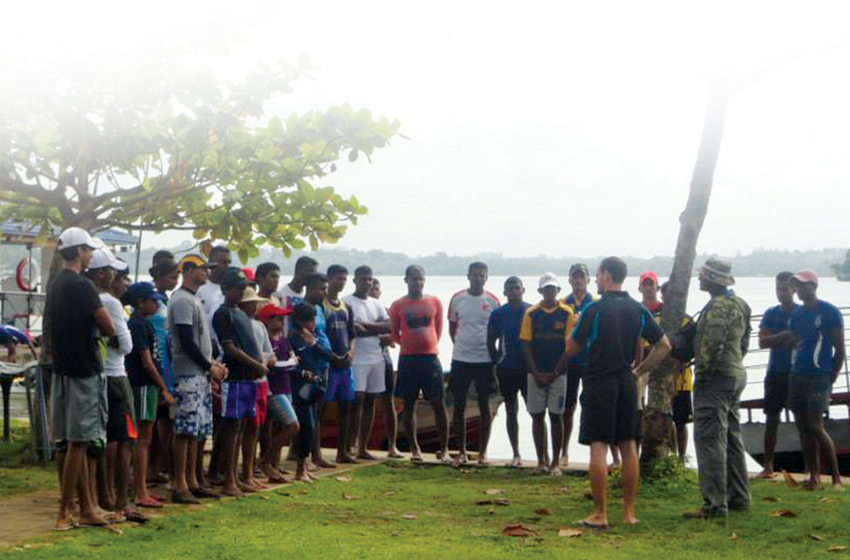
GG: A kayaker needs to have good upper body strength. So the exercises we perform are:
Weight Training Exercises
- Bench Presses
- Bench Rows
- Front and Side Dumbbell Raises
Weight training is done on days we don’t have paddeling in the water. We usually do 6 sets of 20 repetitions per exercise.
Body weight Exercises
- Push Ups
- Pull Ups
- Sit Ups
- Hanging Leg Raises
- Free Squats
We do body weight exercises after paddling in the water. We usually do 10 sets of 15 repetitions per exercise.
F&S: How would the physical build of average Sri Lankans help us to compete on the world stage?
GG: The kayaker has to be strong not big. I was not a big guy but I could compete with bigger guys because I was strong and I had good endurance. The emphasis should be placed on good training. If the kayaker is of a smaller build but has good strength and endurance then he is at an advantage. With good training Sri Lanka can achieve great heights in the sport.
F&S: Thank you Greg for your time from your busy schedule to give us this interview and for the valuable coaching advice you have imparted to our local coaches. We wish you all the best in your coaching career in New Zealand.
Canoeing and Kayaking which is an Olympic Sport, is relatively new to Sri Lanka as a competitive sport, although it has been practiced as a leisure sport, since the years gone by. Being an island nation with many waterways, the sport has great scope for further development in the country and can become a sport to be reckoned with , both for competition and for leisure ,if properly nurtured and encouraged.
Presently, the Defence Services, comprising the Sri lanka Army, Navy and the Airforce are keen practitioners and so are a few clubs and schools. Getting the young children at schools level to take to the sport is most important, given that, to attain global levels of competition, sports men/women need nurturing from their growing years. However, this is a big challenge, because of the demands of other competitive long established sports and academic pressures in the schools.
Recognizing the scope for Canoeing and Kayaking in Sri Lanka, the National Olympic Committee of Sri Lanka(NOC/SL),has been actively encouraging and assisting in the development of the Sport by providing the NATIONAL ASSOCIATION OF CANOEING AND KAYAKING(NACKSL),WITH AN ANNUAL SUBVENTION,AS IS DONE BY NOC/SL FOR ALL its MEMBER SPORTS ASSOCIATIONS affiliated to the NOC/SL and also providing them with assistance for capacity building programmes, such as training of trainers and for sports administration courses, whenever it was possible and as per our own limited capacities, through the various international assistance programmes funded by the International Olympic Committee, by way of Olympic Solidarity Assistance (OSA). This is as per the limited mandate of the NOC/SL.
However, sports development in a country requires the focus, support and encouragement from the other stakeholders as well. The Private Sector assisting the Ministry of Sports can play an integral role in taking the sport to the highest level possible, both for competition and for sports tourism. This relatively young sport in Sri Lanka is much in need of infrastructure, equipment and other forms of assistance like training and competition, given that all national sports associations are run voluntarily. In the countries who are leaders in sports competitions, sports have developed to the highest levels because of their investments in those respective sports. Therefore, the stake holdings, partnerships, transparency and accountability in the management of sports are the keys to success of sports development in any country.
In concluding, I wish to commend the untiring efforts and the commitment of Mr Prithiviraj Perera, President /NACKSL,Captain Priyantha Perera,Secretary General/NACKSL and their team in NACKSL who have given their times voluntarily and with much enthusiasm towards promoting this newly introduced Olympic Sport in the country. Whilst assuring the NACKSL of the continued support of the NOC/SL, I wish to urge the Ministry of Sports, the Department of Sports Development in the Ministry, and also the Private Sector, to play their role in taking this sport to the highest levels globally, since it has immense scope for further development in the island nation of Sri Lanka.


